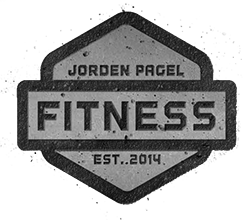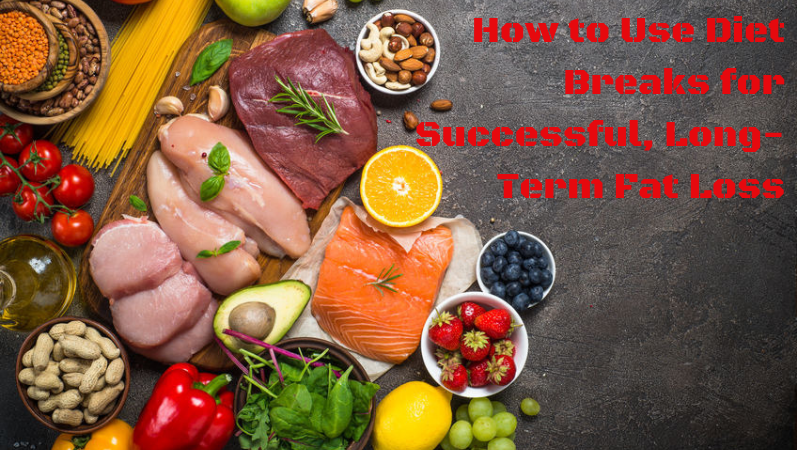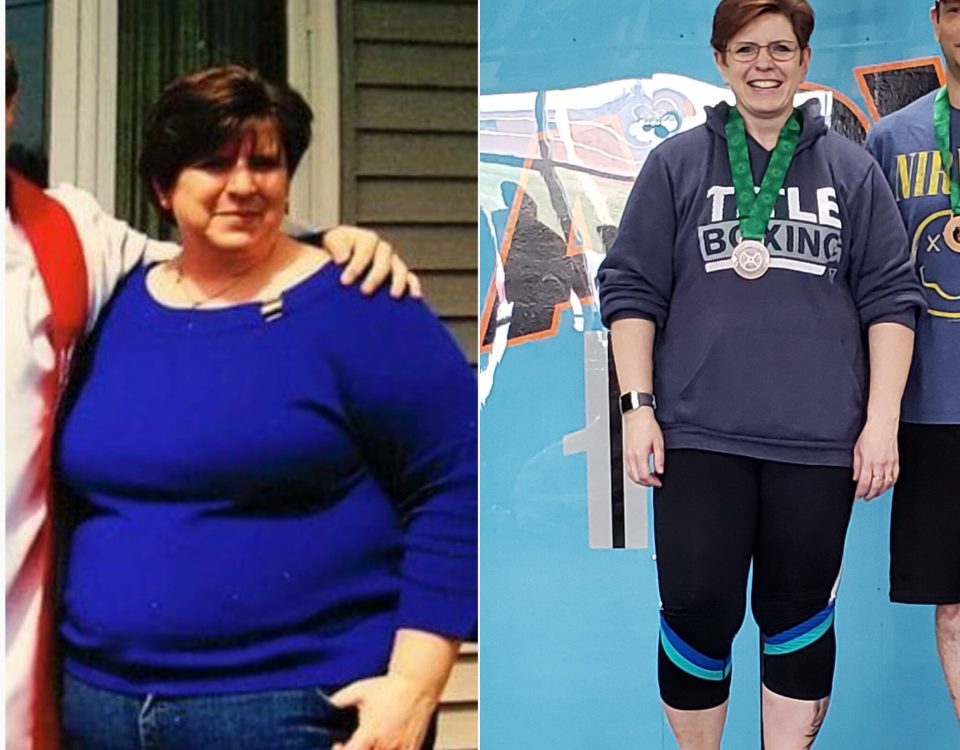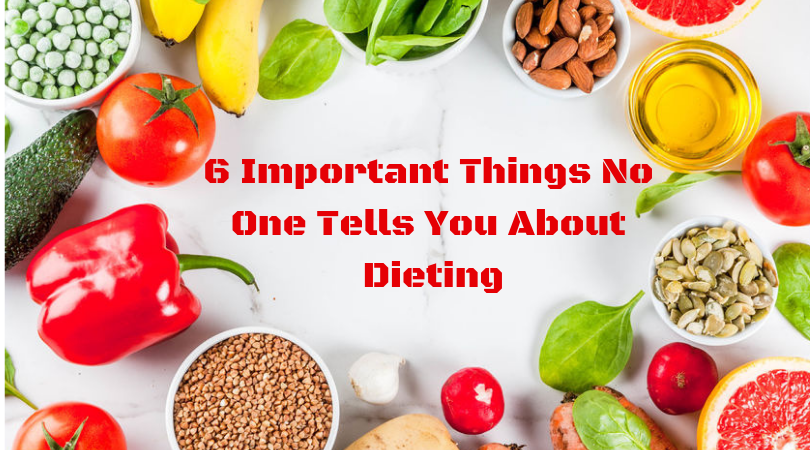Clean Eating is Unnecessary
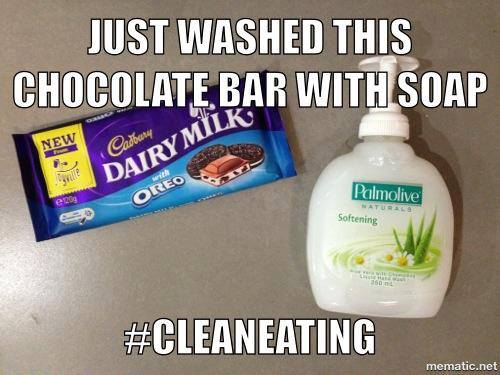
We as humans love labeling things. Why? Because it makes life easier; it provides us rules with which to live by.
If you’re seeing someone, labeling yourselves as “In a Relationship” makes things much simpler than if you’re “just hanging out” or what-the-fuck-ever you call it. If you’re in a relationship, you can’t make out with the bartender you met while out with your friends. You can’t be swiping right on Tinder every day. If you’re just hanging out…eh, there’s a confusing gray area.
The same holds true with nutrition. Give someone hard and fast rules, and their much more likely to follow the plan and see results. At least in the short term.
But, the problem with rules is, as much as we want them, we love to break them. And not only do we love breaking them, we find it very easy to justify breaking them.
“All my coworkers ordered dessert, so I couldn’t be the only one left out.”
“The game was on, so I had to have some beers.”
“She shoved her tongue down my throat…I thought it would be rude to stop her.”
“I was drunk…”
See…justification.
Whether we admit it our not, we all need rules in our lives; some form of structure. Otherwise, left to our own devices, we’re likely to eat, drink, and bang whatever we want, whenever we want.
And, as much as I hate rigidity, when it comes to nutrition rules are a good thing. This is why diets with a structured set of rules, such as paleo, carb cycling, sugar-free, and whatnot, all can provide good results.
(Again…at least in the short-term.)
I don’t have a problem with diets that have rules, that omit certain things, or say you can eat a certain way. That’s not at all what I do with my clients, but if it works for you, then by all means, go for it.
What I do have a problem with, is dogmatic diet philosophies, that if you asked 100 people their definitions, you’d get 100 different answers.
And such is the case with clean eating.
Clean Eating: What Is It?
The concept of eating clean is largely credited to the bodybuilding community, stretching all the way back to the 1980s.
At its core, clean eating is essentially the minimization or elimination of processed foods from one’s diet. The definition of “clean” however, tends to shift with the nutritional trends of the time. In the 80s and 90s fats were public enemy number one, so they were considered unclean. Then in the 2000s public perception shifted and highly processed carbs and grain became the enemy, so then those were considered unclean.
(So if you’re still confused about what exactly constitutes “clean”, that’s okay. And we’ll talk about why in a minute.)
According to WebMD, clean eating “encourages a lifestyle approach of exercise and a diet plan of unprocessed, whole foods like fruits, vegetables, whole grains, lean meats, and no artificial ingredients, preservatives, “chemically charged foods,” sugars, saturated fat, and trans fat.”
Clean Eating Pros
The biggest benefit to clean eating is its emphasis on minimally processed, nutrient-dense foods. This is an approach that can only serve to benefit people.
The other advantage of clean foods is they’re typically less calorically-dense and more voluminous than their processed counterparts. What this means is that clean foods will provide you with less calories while filling you up quicker than highly processed foods. In fact, simply replacing highly processed foods with minimally processed ones in your diet can help with weight loss for this exact reason.
While encouraging a diet high is fruits, veggies, lean proteins, and whole grains is great, unfortunately, this is where the benefits of clean eating end.
Clean Eating Cons
Like I alluded to earlier, one of the biggest problems with clean eating is that there’s no exact definition of what “clean” actually means. Ask ten different people and you’re likely to get ten different answers. And, as I’ve already written about before, labeling foods does more harm than good.
Vegans believe all animal products are unclean.
Vegetarians won’t eat meat.
If you’re eating paleo, that means you stay away from grains, dairy, sugars, etc.
Low-carbers don’t eat rice and potatoes, which are considered clean foods by bodybuilders.
Different foods are considered unclean to different people. But to your body, it’s all energy.
According to Layne Norton, PhD, professional bodybuilder, powerlifter, and coach,“It’s not like your body has an indicator that says, “Oh I just ate chicken and broccoli,so it’s going to go all to muscle.” or “I just ate a bowl of low-fat ice cream so that’s going to go all to fat because it’s a ‘unclean’ food.”
A second, and much bigger problem with clean eating, is that it can create an unhealthy relationship with food.
In 1996 a doctor by the name of Steven Bratman coined the term orthorexia nervosa, which is defined as an unhealthy obsession with eating healthy. Clean eating exacerbates this condition by essentially requiring people to obsess about the foods they’re eating; whether they’re “clean” or “unclean”, “good” or “bad”.
The last big issue with clean eating is that it provides no method of caloric accountability, which if you’ve gone through my free fat loss course, you know is very important for body composition.
Energy balance is the number one driver of bodyweight. If you eat fewer calories than you burn, you’ll lose weight. If you eat more calories than you burn, you’ll gain weight.
However, clean eaters have the assumption that since they’re eating “clean” they’ll lose weight. It can happen, but they reason is because they’re eating fewer calories than they burn, NOT because they’re eating clean.
A study done by Surwit et al supports this. They took two groups of people and put them on 6-week hypocaloric diets. The first group had 43% of their calories coming from sucrose, or table sugar, with the second group having only 4% of their calories coming from sucrose.
The study found that there was no significant difference in the loss of bodyweight or body fat between the two groups. It also found no difference in blood lipids or metabolism. So the group eating almost half their calories from an “unclean” source (sugar) lost just as much weight as the group eating almost zero sugar.
Does It Work Tho?
For most people, clean eating works initially, whether their goal is to lose weight or eat healthier. Simply replacing highly processed foods with less processed ones will normally reduce how many calories you’re eating, resulting in initial weight loss.
When progress stalls however, is when most people get frustrated.
For people who eat clean AND count their calories, clean eating can be a very effective long-term strategy, especially if they allow themselves a treat or two occasionally.
There are a lot of arguments back and forth regarding food quantity vs. quality. While both matter in terms of overall diet, they both matter for different reasons. Food quantity matters most for weight loss/gain. Study after study supports this.
However, food quality also matters. Especially when it comes to overall health. Getting enough vitamins, minerals, and fiber is crucially important for proper function of the immune, cardiovascular, nervous, and almost every other system in the body. And eating a diet rich in whole, minimally processed foods will only serve to help in this regard.
The Dirt on Clean Eating
In theory, clean eating is a solid nutritional approach. Eating mostly whole, minimally processed foods should be the foundation of all diets.
Like a lot of theories however, the science and application don’t support it. Studies have repeatedly shown that commonly thought of clean foods, like organic, provide no additional health benefits, while unclean foods, like those containing GMOs, provide no health risks.
In fact, clean eating may have more drawbacks than it has benefits. If the goal is weight loss, clean eating may provide results. Or it may not. Energy balance is and always will be king when it comes to weight loss or gain. If you’re eating more calories than you burn, you will gain weight, no matter how “clean” the food is.
However, when combined with calorie or macronutrient counting, clean eating can be an effective strategy for weight loss.
The bigger issue with clean eating, lies in its ambiguity and border-line obsessive-compulsive nature. Again there is no one definition of “clean”, which is only going to confuse people and make the dieting process even harder.
Classifying foods as good and bad is also dangerous. No one food in isolation is harmful to your health. No one food is going to make you fat. Too many calories are going to make you fat. Having high levels of body fat is harmful to your health.
A better plan would be to take an 80/20 approach to your diet. 80% of the time, your food should come from whole, minimally processed sources. The other 20% of the time they can come from foods you enjoy, even if they are “unclean”.
“There currently is no compelling evidence suggesting that a diet whose calories are 80-90% from whole & minimally processed foods is not prudent enough for maximizing health, longevity, body composition, or training performance… And just to reiterate, processed does not always mean devoid of nutritional value. Whey and whey/casein [protein] blends are prime examples of nutritional powerhouses that happen to be removed from their original food matrix.” says world-renowned nutritionist Alan Aragon, M.S.
The key to a successful diet isn’t about eliminating certain foods or only eating “clean” ones…the key is being able to sustain it long-term. And to do that there needs to be some level of flexibility so you don’t lose your mind.
Fat Loss Made Easy!
Subscribe to the JPF newsletter and get my 5-Day Fat Loss email course absolutely FREE! You'll learn how to create your own fat-shredding program in less than a week.
Plus you'll get the latest updates from the blog, exclusive offers, and other cool stuff.
